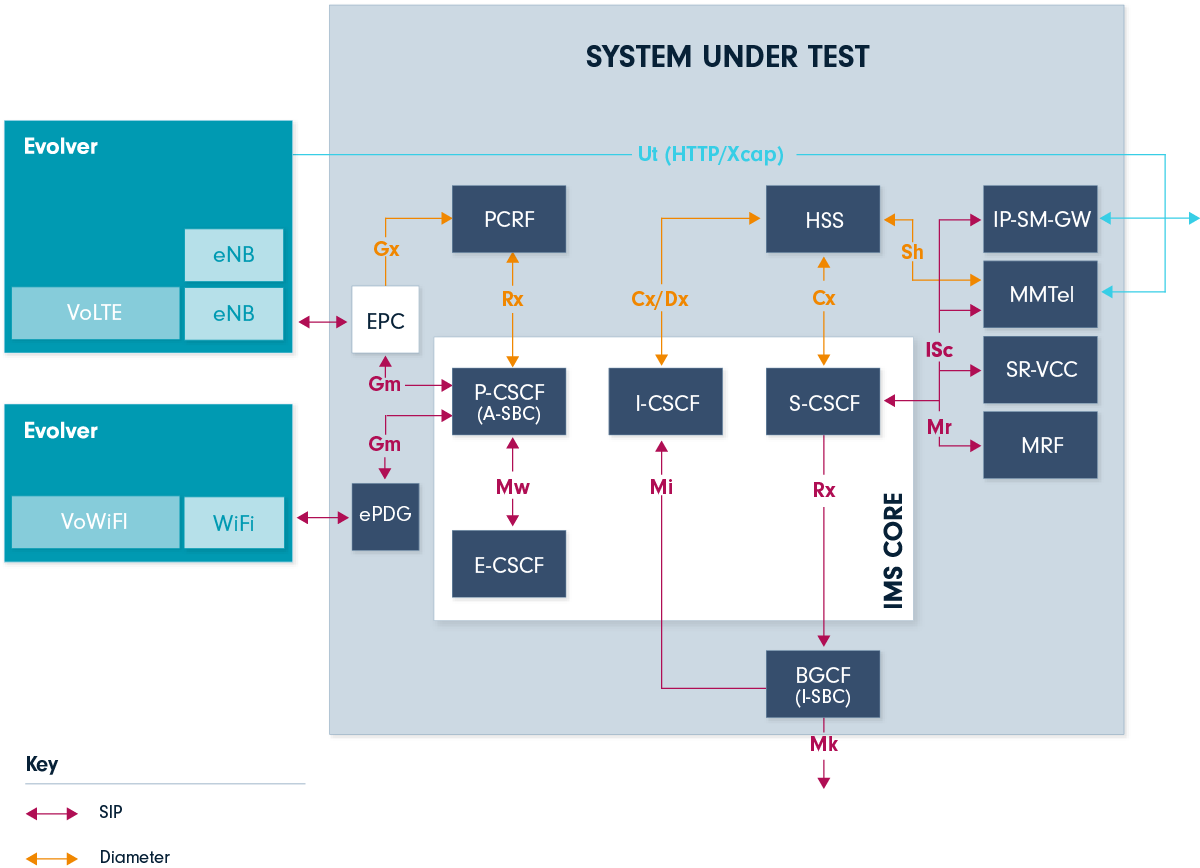
Multi-protocol testing – validating and assuring service chains
Multi-protocol testing – validating and assuring service chains
Network protocols are the foundation of today’s communication technologies. Without them, making an international voice call, sending an email, searching the internet – any task that we perform on our devices – would not be possible.
Network protocols and interfaces make digital communication possible. Each protocol defines processes and procedures for the accomplishment of tasks – for example, setting up a voice or video call. The protocol can include mechanisms to cater for unexpected events and typically includes instruction messages and responses. These must be correctly formatted and delivered in the correct sequences. Moreover, many actions will trigger others from related systems – so, setting up a voice call must also result in the billing procedures being activated or checked.
As we know, networks contain multiple protocols and many network elements must support several of these. For example, the Diameter protocol is used to exchange authentication, authorisation, and accounting (AAA) information in 4G LTE and IP Multimedia Systems (IMS) networks. While, in 5G, HTTP/2 has been adopted as basis for inter-function communication.
The complexity of testing service chains
In a given service flow, actions and events that relate to the requested service are conveyed from one resource to another via interfaces. Figure 1 highlights the multiplicity of interfaces and nodes that could be involved in a service.
To give just a simple example, the UE must connect to the LTE network (eNB) and then interacts with the P-CSCF. In turn, this connects to the S-CSCF (which may also request services from the PCRF / HSS to support charging, admission control, and so on). So, we have multiple steps – and multiple interfaces to consider.
Figure 1. VoLTE and IMS network overview

Clearly, this involves a considerable number of tasks, functions, protocols, and interfaces that are involved just in making a VoLTE call. As a result, this means that, when it comes to network testing and validation, any end-to-end service test must consider all the elements in the entire service chain. Each element can be tested in isolation – for example, for a specific interface – but that doesn’t show how the entity concerned makes the next step in that chain.
Each step could be tested in turn, but again it does not reflect the sequence in operation – and is, moreover, cumbersome and time-consuming. Much better is to be able to connect to multiple interfaces simultaneously. The above example is only looking at SIP, but what if we wanted to check that the correct charging information is applied to the call – that is, does the HSS update the OCS / OFCS correctly? That requires yet another interface.
Simultaneous testing of HTTP/2 and Diameter in internetworking
Another important example is that of interworking. Consider the PCRF (Policy and Charging Rules Function), which is essential for 4G and VoLTE networks as it provides capabilities to request and monitor service quality, on a per-session basis. In 5G, this has evolved into the new Policy and Charging Function (PCF), which is a key component of the 5G Service Based Architecture (SBA) and is a key enabler for a whole new class of QoS-enabled and disaggregated services.
This means that most network operators will add PCF solutions to their networks as part of the evolution to 5G SA, but most will already have PCRF nodes associated with their legacy networks. Many services will span both 5G and 4G domains, so the appropriate AAA procedures must be observed in each. This requires testing both Diameter and HTTP/2 at the same time – performing testing individually for each is limiting and time-consuming.
So, supporting the testing of multiple protocols and interfaces simultaneously is essential for boosting efficiency, reducing time to deployment, and validating the full service chain in operation.
Emblasoft Evolver enables simultaneous multiple protocol testing from a single platform
Emblasoft Evolver is a comprehensive simulation, testing, and validation tool that enables the creation of complex test cases for functional testing, all of which can be automated and reused as a base template for performance testing.
Our solutions mimic real-world traffic patterns by simulating a large number of simultaneous sessions to create realistic load-, stress-, and other characteristics tests in an unrivalled way. Testing can be introduced quickly and simply, either at the node- or system-level.
Evolver injects traffic from all sides, with monitoring and checking status – from a single script. It’s able to simulate clients as mobile users on mobile devices, from both ends – the sender and receiver.
Notably, unlike many other test solutions, Emblasoft can perform and automate tests over multiple protocols, including (but not limited to) MSRP, SIP, HTTP, RTP, SS7, Diameter, and so on. When it comes to internetworking, for example, Evolver’s flexible support for HTTP/2 and Diameter enables the testing of PCRF and PFC interworking functions. Other functions in the 5G SBA can also be tested.
All tests can be automated, and our tools and solutions are easily integrated into DevOps and CI/CD processes, as well as your other automation solutions, such as Jenkins or Testrail. To find out more, contact us today.